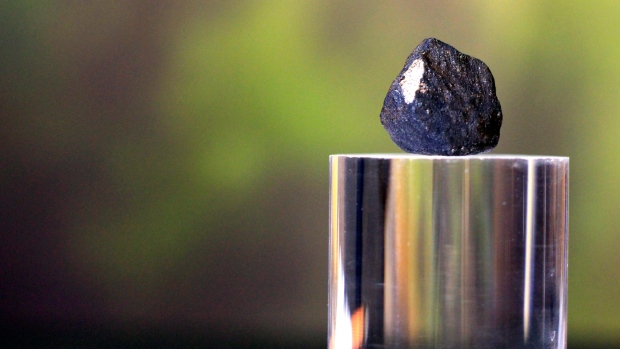The Michigan Meteorite has been the top news for more than a few weeks now. Post the event, people set out to find the pieces of the meteorite and finally a piece was found which is now housed in the Field Museum at Chicago. It has been tagged as an interesting and the freshest sample of all available to the scientists for study purpose.
More than 60,000 meteorites from all over the world have been cataloged, and among them, the one housed inside the Chicago Field Museum is uncontaminated and ready for immediate study by the scientists. The chunk of rock found is a chondrite. The cubic inch sized rock has already been sliced by the scientists with the use of a diamond cutter. This will help the scientists study the rock under an electron microscope owned by the Polar Studies Lab and Field’s Meteoritics.
Professor Philipp Heck, Associate Curator for the lab, stated that this particular specimen of the meteor is a major addition to the collection of space-based rocks presents all over the world. The main aim of the study of this rock is to determine our point of existence, our origin, as well as the formation of our solar system.
The Michigan Meteorite landed on our planet on 16th January which was then hunted by professional meteorite hunter named Robert Ward. The meteorite hunter found this piece on ice in a small lake which is located in the northwestern periphery of Detroit. This place is about 250 miles away from Chicago. Ward worked in association with the museum and made sure that it obtained this crucial piece of the celestial body.
Ward was so enthusiastic about finding this piece that he booked a ticket to Chicago as soon as he heard that a meteorite fell on Michigan. Since the formation of these chondrites, they haven’t seen much of heat which has kept the earliest evidence of existence intact inside the molecules of the rock.
As of now, the researchers have determined that the piece of rock comes from the belt between Mars and Jupiter which ranges from a time around 4.6 billion years prior today. An in-depth analysis of the mineral signature housed inside the rock could reveal a lot about the solar system or even the outer space. Being a fresh sample, the meteorite chunk could house things that aren’t found in other meteorite samples revealing a lot of the origin story behind the meteorite.
Earlier, a private collector who went by the name Darryl Pitt announced a prize to obtain the piece of celestial rock which encouraged many hunters from all around the world to participate in the search. The collector had announced a prize of $20,000 for anyone who brought him that exquisite piece from outer space.
